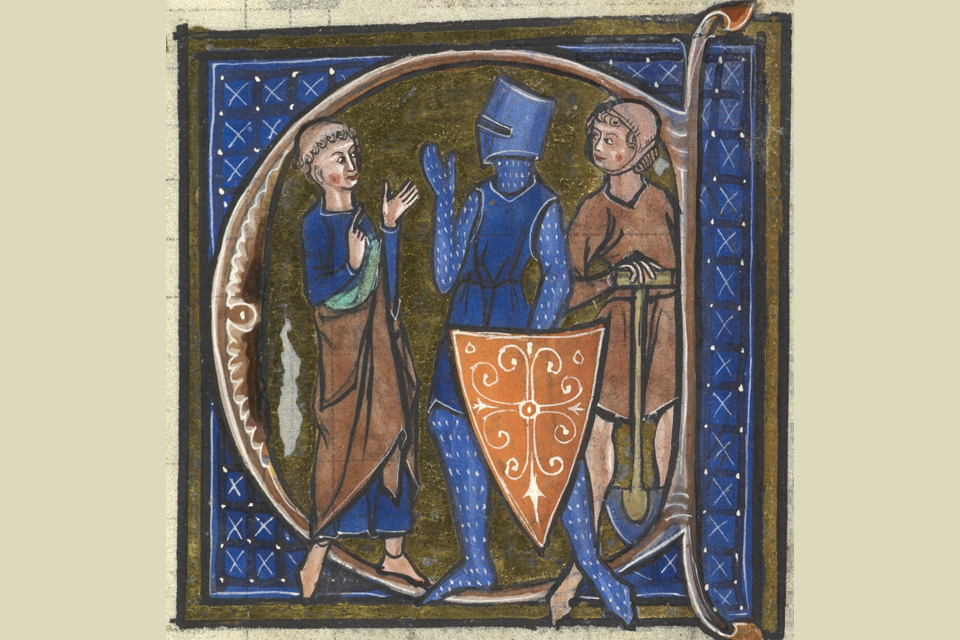Love a good medieval read? Pick up the ‘Tales from The Long Twelfth Century’ by Richard Huscroft and read all about the gory details of the ‘Rise and Fall of the Angevin Empire’.
Tales from the Long Twelfth Century. The Rise and Fall of the Angevin Empire.
By Richard Huscroft
Yale University press 1006.

especially, since this book is primarily about the Rise and Fall of the Angevin Empire as seen through the eyes of ten individuals, who were active on that scene – from William the Atheling to Nicola de la Haye. Yes, it does cover the period from 1100 – 1215 (1230) and as such it is a proper nod to the idea of this century being “long”. It did begin with the coronation of Henry I, and it did end with Magna Carta and the death of John. But there is something un-precise about dates: good to get a sense of when and where, but not much help in understanding ‘what’!
This is something, which Richard Huscroft knows to a fault. He teaches History at Westminster School in London and thus knows exactly what gets little boys excited even though the sun is shining on the Green and they itch for a game of football. The answer is of course ‘tales’ about real people living out their ‘fickle fates’ as Gerald of Wales once wrote; and for which Richard Huscroft quotes him in the end.
Thus we are invited to listen to a splendid set of stories beginning with the drowning of William Atheling and the disaster of the White Ship. This is soon followed by the circumstances of the horrid death of the king, his father by a plate full of lampreys, and the sticky preparation of his smelly cadaver (oozing black liquids) before he is finally laid to rest in Reading Abbey. Now follows the earl’s tale presenting us with the loyalties and disloyalties of Hugh Bigod, the tale of Herbert of Bosham and the Becket dispute. Next up is the tales about the Invasion of Ireland and Richard, Earl of Pembroke (Strongbow). This is followed by the tales of the young king and that of his siblings: Henry of Fitzroy, his brother Richard, John and their sister Joan. And we hear about the exploits and fate of Arthur of Brittany, William de Broouze, Stephen Langton and Nicola de La Haye.
Of course this is a story of kings, nobles, castles, pitched battles, sieges and saints. And properly so! Maybe a powerful position was inherited, but it always had to be maintained, defended and hopefully enlarged. Whether by forging matrimonial alliances or through the exchange of oaths, gifts and help, networks of people were at the centre of the conduct of any affairs in the high Middle Ages involving power. Who sided with whom, where, at what time and at the cost of what? These are the questions being asked. As such, this is a book about men; even the women, whose tales are told, have this “manly” quality about them. Which, of course lead us to some of the stories, which have been left out, for instance that of Rosamund Clifford, the mistress of Henry II and arguably one of the reasons why Eleanor of Aquitaine sided with her sons in the great rebellion in 1173.
To be fair though, Richard Huscroft does regret the fact that the lives of so few women can be intimately described. And he presents us with fascinating glimpses of such a character as Joan, daughter of Eleanor and Henry II and sister to Richard and John. In the end, though, these are tales of heroic deeds performed while blasting down fortified walls and less yarns spun out of the solar.
The basics are there, however. Even though the notes have been kept at a minimum the interested reader is firmly guided towards further reading; whether in the form of primary sources like the great chronicles – Gerald of Wales, Henry of Huntingdon, Matthew Paris and Orderic Vitalis – or by the appended suggestions for further reading; we are not left in the lurch. And we are convinced that Richard Huscroft is in full command of his stuff.
We also know now that he is a great story-teller. Would that he were the teacher of my grandchildren!
Karen Schousboe
ABOUT THE AUTHOR:
Richard Huscroft teaches History at Westminster School, London, and is the author of three books: Ruling England, 1042 -1216 (2005), Expulsion: England’s Jewish Solution (2006) and The New Norman Conquest: A New Introduction (2009).
READ MORE:
When the book was published, Richard Huscroft was invited to write on Yale University Press’ blog. Read there about his intentions behind the book.
FEATURED PHOTO:
Medieval knight, monk and peasant from Sloane 2435, fol 85. © British Library
